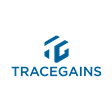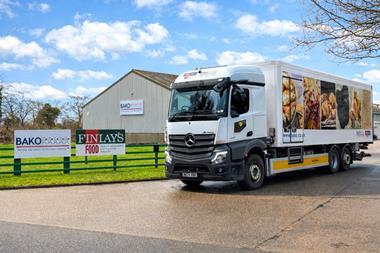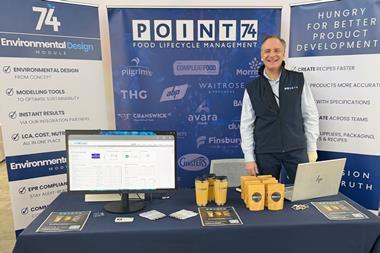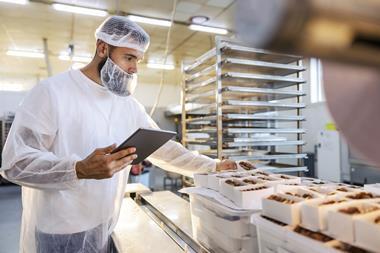Digital revolution and regulatory frameworks are transforming the baking industry – and bakery businesses need to get on board if they are to implement successful, efficient and compliant NPD in the future, says TraceGains.

As the food & beverage (F&B) industry is undergoing rapid technological advancement and increasing regulatory demands, the baking industry stands at the forefront of significant transformation. This transformation is not merely about adopting new technologies but involves a holistic shift in operational, environmental, and ethical practices. The integration of the EU’s Deforestation Regulation (EUDR) and Corporate Sustainability Due Diligence Directive (CSDDD) presents both challenges and opportunities for bakery businesses striving for sustainability and efficiency.
Technology as a catalyst for change
The digital revolution in the bakery sector has accelerated, driven by the necessity to adapt to both consumer demands and regulatory pressures. These technologies enable bakeries to achieve greater transparency, enhance product quality, and optimise production processes.
Impact of regulatory changes on innovation
As the baking industry continues to evolve under the influence of regulatory frameworks, the high in fat, sugar and salt (HFSS) regulations introduced in 2022 have become a pivotal factor driving change, particularly on the bakery sector, known for its indulgent, sweet products. The response from the industry was towards recipe reformulation to develop new, HFSS-compliant bakery product alternatives, which are therefore not subject to the HFSS regulations’ promotional restrictions.
Now, the EUDR has put a spotlight on the sourcing practices of bakery businesses, particularly concerning ingredients like palm oil, notorious for its links to deforestation. Bakeries are now compelled to ensure that their supply chains are free from environmental harm, necessitating a shift to certified sustainable sources or alternative ingredients that meet regulatory standards.

1. Supply chain transparency: Bakeries must now conduct thorough audits of their entire supply chain to ensure compliance with human rights and environmental standards. This includes the sourcing of ingredients like palm oil, cocoa or soy, which are often associated with high deforestation risks.
2. Sustainability practices: The directive encourages bakeries to adopt more sustainable practices, such as reducing carbon emissions and minimising waste. This could involve enhancing operational efficiencies through technology, as seen in predictive demand forecasting and route optimisation, to decrease unnecessary transportation emissions.
3. Data requirements: In response to evolving regulations, there is a marked shift in the types of data bakery brands are mandated to collect, significantly impacting their operational and innovation strategies. The EUDR, for instance, requires the collection of precise geographic coordinates of the regions where ingredients such as palm oil, cocoa and soy are sourced. This necessitates the adoption of sophisticated, flexible technological systems capable of integrating and managing complex data from diverse external sources. Such systems not only support compliance with stringent regulatory requirements but also enhance the capacity for transparency and traceability in supply chains. By leveraging these advanced digital tools, bakeries can monitor their environmental impact more effectively, and adapt their product sourcing strategies, thus aligning with global sustainability standards and consumer expectations for ethical production practices.
Similarly, the CSDDD means bakeries must look to implement comprehensive due diligence processes. This directive requires businesses to not only track the direct impact of their operations but also to assess and mitigate potential risks in their wider supply chains. This includes monitoring labour conditions, environmental practices and corporate governance across all tiers of their supply networks.
“TraceGains’ 2024 NPD report reveals that more than three quarters (76%) of global brands are planning NPD investment in 2024. However, 56% of brands cited a lack of internal tools for managing product formulations and recipes as a major hurdle”
Sustainability and consumer expectations
Consumer preferences are increasingly gravitating towards products that are not only high in quality, and nutrition but also ethically produced. This shift is reflected in the growing market share of products boasting eco-friendly and ethical labels. Bakeries that proactively embrace these values, supported by transparent practices and clean labelling, are better positioned to build trust and loyalty with modern consumers.
Challenges and opportunities ahead
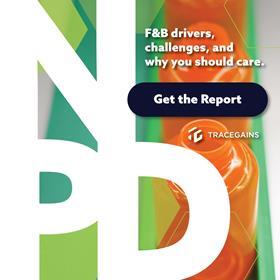
TraceGains’ 2024 NPD report reveals that more than three quarters (76%) of global brands are planning NPD investment in 2024. However, 56% of brands cited a lack of internal tools for managing product formulations and recipes as a major hurdle.
Integrating digital technologies opens up numerous opportunities and play a crucial role in supporting the baking industry’s adaptation to regulations where ingredient changes have been essential, particularly through the process of recipe reformulation. These technologies facilitate the simulation of different ingredient combinations and measure their impacts on nutritional profiles efficiently, allowing for quick adjustments and innovation in product development.
Bakeries that leverage digital tools to enhance efficiency and transparency are likely to experience reduced costs over time, improved consumer satisfaction, and stronger brand loyalty. Moreover, by positioning themselves as sustainable and responsible, bakeries can tap into new market segments and differentiate themselves in a competitive market.
Embracing digital tools for sustainable innovation
Digital transformation stands as a critical solution to modern challenges in new product development (NPD). By employing digital tools and advanced data analytics, companies are transforming the NPD landscape. These technologies deliver crucial insights that not only refine product development but also bolster quality control and hasten the transition from concept to market-ready product. Utilising these resources helps businesses more accurately predict market trends, fine-tune product formulations, and streamline supply chain operations. Outdated, manual methods are becoming hurdles and roadblocks to success, transitioning these processes to digital platforms could drastically enhance operational efficiency and reduce errors.
In addition, digital adoption is becoming an important strategic enabler for brands looking at future-proofing and towards ongoing regulatory and industry changes over the coming years. As regulation evolves to require not only more data, but also higher levels of data quality, technology platforms that can enable the smooth exchange of digital information even within complex supply networks are increasingly important assets for growth-oriented brands.
Reflecting on the journey ahead
Looking forward, the baking industry’s journey towards greater sustainability and innovation is underway. As the industry continues to evolve, the role of technology and the impact of regulatory frameworks like the EUDR and CSDDD are becoming increasingly significant. In this transformative era, TraceGains remains committed to leading the charge, helping bakeries not only navigate these changes but thrive in a dynamic global marketplace. Providing holistic solutions that drive forward a movement towards greater sustainability and innovation in the baking industry. The networked platform offers access to an extensive ingredients database, enabling bakeries to explore innovative and sustainable ingredients and nutrition calculation, formulations and labelling solutions. With its networked approach and horizon scanning capabilities, TraceGains facilitates seamless collaboration with suppliers, streamlining the introduction of new products while ensuring strict adherence to regulatory standards, empowering bakeries to meet the future with confidence and creativity.
To find out more about TraceGains Digital Solutions click here.
